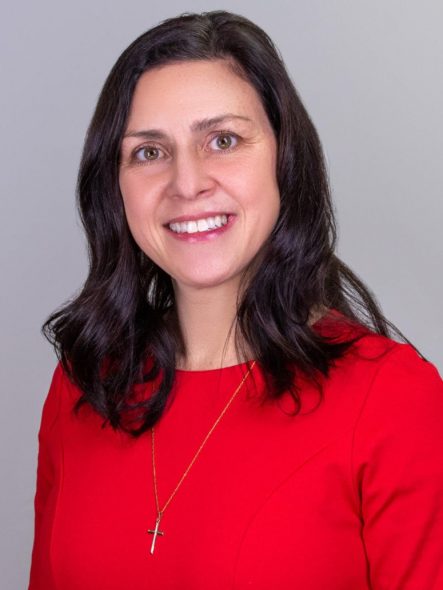New Wisconsin Legislators Prepare for Session
6 new state Senators and 31 new Assembly members need to learn the process.
Over a quarter of lawmakers will take their seats in the Wisconsin Legislature for the first time in 2025, with six new state Senators and 31 new Assembly members following November elections under new legislative maps. In the Assembly, there are 23 new Democratic lawmakers and eight new Republican lawmakers. All of the new state Senators are Democrats.
The Examiner spoke with four of the new lawmakers about preparing for the start of the legislative session ahead of Inauguration Day on Jan. 6 and what they hope to work on in the new term.
Orientation: A ‘great first step’
Incoming lawmakers participated in an orientation during the second week of December to learn more about the ins and outs of the Legislature and to meet their colleagues.
Rep.-elect Christian Phelps, a Democrat who will represent parts of Eau Claire, joins the Assembly with a background in organizing, having most recently worked for the Wisconsin Public Education Network. He said that his advocacy background gives him some familiarity with the workings of the Legislature — he’s watched floor sessions and attended committee hearings to testify.
“We all probably come in with varying degrees of familiarity with the processes because that’s the nature of democracy,” Phelps said. “Even if you have that kind of background, there’s a lot you don’t know — just kind of the behind the scenes, inner workings.”
Programming for the orientation was organized by the Legislative Council, and the incoming lawmakers said the sessions covered issues such as open records laws, office management skills, technology and human resources information.
Democratic Sen. elect Jodi Habush Sinykin of Whitefish Bay said it was a “terrific itinerary of training,” and “very thoughtfully done.”
The group of new lawmakers spans a broad spectrum of experiences.
Some have backgrounds in local government, including Rep.-elect Tara Johnson, a former La Crosse County board supervisor, Rep.-elect Vinnie Miresse, who has served as a Portage County Board member, Rep.-elect Brent Jacobson, who has served on the Marathon County Board and Rep.-elect Margaret Arney, who has served as an alderperson in Wauwatosa.
A handful come from an education background including Rep.-elect Angelina Cruz, a veteran public school teacher and president of Racine Educators United, Rep.-elect Joe Sheehan, a former Sheboygan Area School District Superintendent and Rep.-elect Angela Stroud, a professor of sociology and social justice at Northland College.
Some have served in the military, including Rep.-elect Benjamin Franklin, who served in the Air Force, Rep.-elect Angelito Tenorio, who served in the Wisconsin Army National Guard, and Rep. -elect Duke Tucker, an Air Force veteran.
Some of the incoming lawmakers have prior experience serving in the state Legislature. Republican Rep.-elect Rob Kreibich of New Richmond, a former TV anchorman, served previously from 1993 to 2007 and Rep.-elect Dean Kaufert, former mayor of Neenah, previously served in the Assembly from 1991 to 2015. Sen.-elect Dora Drake and Melissa Ratcliff are joining the Senate from the Assembly, filling the seats of two outgoing lawmakers. Rep.-elect Dan Knodl is rejoining the Assembly after serving in the Senate for part of a term.
Rep.-elect Renuka Mayadev, a Democrat from Madison, said the diversity of backgrounds in the new freshman class is exciting because it makes conversations robust. She most recently worked at the UW School of Medicine and Public Health as a program advisor for maternal and child health in the Wisconsin Partnership Program. She’s planning to leave the job to focus on serving in the Assembly.
“When you get to be with folks in a room all day, for two days, we get to really know each other, and I really appreciated that time,” Mayadev said. “I spoke to some of my new colleagues in the Republican caucus, and we talked about things that we could do together and places that we actually find a lot of common ground.”
Some of the common ground came in the form of connecting on a personal level, Mayadev said. She said she had a conversation with one of her colleagues from across the aisle, whose kids were getting sick.
“I talked about how my kids growing up would get ill in childcare, and how you fight lots of colds this time of year,” Mayadev said. “They might be seen as mundane conversations, but they’re really important.”
The sentiment was shared by other lawmakers.
Republican Rep.-elect Lindee Brill of Sheboygan said the “cool” part about lawmakers in the U.S. is that they are elected by the people.
“You’re all of a sudden surrounded by a lot of different people who come from a whole lot of different backgrounds,” Brill said. She noted that there were “a lot more Democrat freshmen than there were Republican.”
“I had great conversations with them over the two days. When it comes down to it, you know, the people elected us to each of our districts, and so we need to, we need to figure out what that looks like to best serve Wisconsin,” Brill said. “There are 99 seats, and us 99 are going to soundly represent the people of Wisconsin, so we have to figure out how to best serve them.”
What incoming lawmakers are hoping to work on next session
Phelps said that he envisions that his office will serve as a “megaphone” for the issues important to his district in the Capitol and also will communicate what’s going on in the Capitol to his district.
Phelps said he wanted to get to work as soon as possible after being elected because he knows that the first part of the odd-numbered session year will go by fast and that the state budget, which will be written then, is powerful.
Phelps said he started reaching out to speak with local elected officials, including town board members, school board members, mayors, council presidents, in the weeks following his elections.
“No one person can know off the top of their head what the most important thing is for all 13 of 13 townships, particularly when I haven’t taken office yet,” Phelps said. “I just kind of wanted to open the door to say: what is that?”
Phelps said he especially is working to identify the issues most important to working class voters in his district, which is a bipartisan group.
“They want investments in their public schools, and they want to stabilize health care in the Chippewa Valley, after the hospital closures and clinic closures there,” Phelps said. “I met so many people who told me that they identify themselves as conservative or moderate, but agreed with me on a number of values based or policy based proposals.”
Similarly, Habush Sinykin said she has been meeting with constituents, with community leaders and with legislators. She also was able to have a discussion with Gov. Tony Evers about the upcoming budget. She said her advocacy focus will be “two-fold” as she wants to help find a “balance between how we can invest in our state to move Wisconsin forward, economically, educationally” to keep and attract young families and addressing “the needs of people to have some tax relief, whether it be income tax and or property tax relief.”
“A year ago, I didn’t know this is what God had in mind for me, so it’s been a bit of a whirlwind, but I’m excited for the opportunity,” Brill said.
Brill comes to the Assembly having most recently worked at faith-based nonprofits, including at Samaritan’s Hand, a Sheboygan drug and alcohol clinic and earlier at Anchor of Hope, a crisis pregnancy center in Sheboygan.
Brill said she wants to work on the fentanyl crisis in the state and “protecting life [in] every possible way.” Brill described herself as a “pro-life” candidate, having run her campaign with the endorsement of Pro-Life Wisconsin and the promise not to “change my viewpoint on life beginning at conception.” She said she also wants to help shape the state’s elections processes.
When it comes to the state budget, Brill said she’s still learning about the process, but thinks the state could take cues from the incoming Trump administration.
“I believe we’ll get good guidance from the federal [government] and then we’ll be able to follow suit with what he has in mind,” Brill said. She is excited about Donald Trump’s Department of Government Efficiency (DOGE), led by Elon Musk and Vivek Ramaswamy. Assembly Speaker Robin Vos recently announced that the Assembly will have a Government Oversight, Accountability and Transparency (GOAT) Committee next session, to mirror DOGE.
Mayadev said she plans to use her skills to work for women, children and working families in the Assembly.
One issue she hopes the state will take action on is Medicaid expansion for postpartum mothers. She said she watched as the effort to have Wisconsin join the majority of the country in covering postpartum care for a year, rather than the current 60 days, failed. It passed the Senate but was never taken up in the Assembly. Wisconsin and Arkansas are the only two states in the U.S. that have not extended and do not plan to extend coverage.
“This is critical. Coverage is critical. We need to work on all facets for women’s health, but if they don’t have coverage, especially postpartum, how are they supposed to get the care they need for themselves and their babies and families?” Mayadev said.
“We know inflation has hit our families’ pocketbooks. We know that child care expenses and just the availability of finding child care [of] high quality is very difficult in our state,” Mayadev said. “We need to do things for our constituents, rather than just obstinance and sitting on opposite sides of the fence… I hope that continues.”
New Wisconsin state legislators prepare for session was originally published by Wisconsin Examiner.

























Hopefully they can work together to give some tax relief for wisconsinites as well as figuring out how to make childcare more affordable for working parents. Affordable childcare is a very big issue for working parents.
Let’s hope they can work together to give tax relief to those that make less than $100,000 per year. Less tan 1/2% of Wisconsin’s residents make more than $100,000 and it is well past due for some tax relief for the majority. It is also time to make ALL public schools have adequate funding, the Holcomb School District will be dissolved if the local taxpayers do not pass a referendum in the spring election, while the Chippewa Area Catholic Schools receive MORE taxpayer’s monies from the State of Wisconsin. This is entirely wrong giving this public money to a religious based school and is likely a 1st. Amendment violation!
we need funding for schools most important. we need funds for child care centers and better pay for care givers.
we need to expand Medicaid.